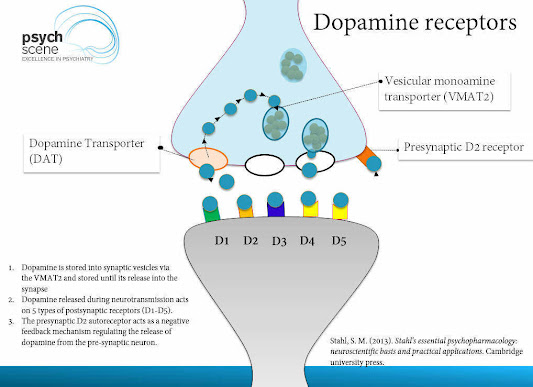Fall 9 Epigenetics and Gaming Addiction
Dopamine is our bodies “feel good” chemical, that is
produced as a reward our brain gives us when we do something it likes. Dopamine produced by gaming can trigger these excitatory effects,
enticing us to play more, which can lead to addiction.
Even though dopamine is considered an excitatory neurotransmitter, the chemical messenger can encourage or discourage an action depending on the receptors present. There are 5 different dopamine receptors (D1-D5) that control things like attention, impulse control, decision making, learning, memory, and sleep. When dopamine is received by an excitatory receptor, we feel pleasure and want to continue the behavior. When it is received by an inhibitory receptor, it may negatively affect impulse control and decision making.
Epigenetics can impact the production and regulation of dopamine, as well as dopamine transporter and receptor production. Altering these proteins can lead to addictive behaviors.
1) An underproduction of dopamine may cause individuals to seek out dopamine creating activities, such as gaming. Insufficient levels would encourage a person to keep playing to maintain or increase current levels.
Healthy activities, such as exercise, can be a positive substitute by maintaining dopamine production while encouraging the body to correct its epigenetic defects, reducing the dependence on gaming.




Comments
Post a Comment